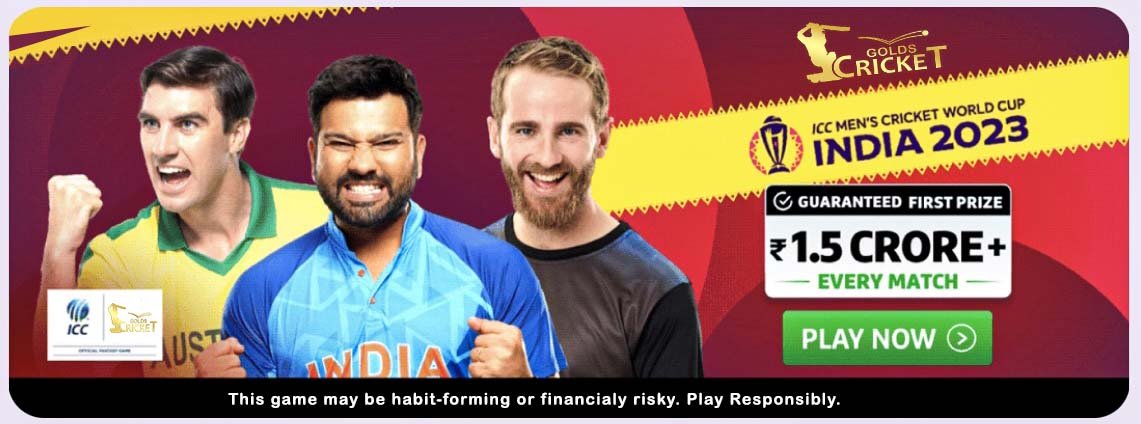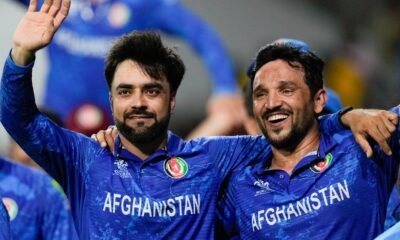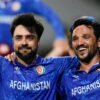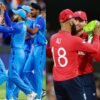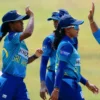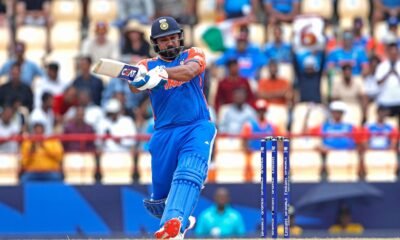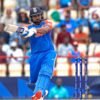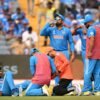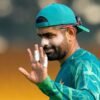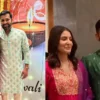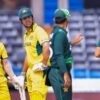Cricket
Remembrance of editions past through ad campaigns | Cricket
[ad_1]
The 1996 World Cup will be remembered for many things: three countries hosting it, an India-Pakistan team touring Sri Lanka, Romesh Kaluwitharana and Sanath Jayasuriya starting in fifth gear, bottles and bedlam at Eden Gardens, Sri Lanka emerging champions and the punchline, “Nothing official about it.”

The Pepsi television commercials ran through the tournament in India, Pakistan and Sri Lanka. They featured Courtney Walsh, Ian Bishop, Mohammed Azharuddin defying gravity, Sachin Tendulkar being himself, Dominic Cork doing a spaghetti Western act and umpire Dickie Bird, then retired from ODIs, in a bench wig. Coca Cola was the official partner, having paid, according to some reports, Rs.10 crore, but you can’t bring the tournament back to life without talking about how Pepsi ambushed them.
It that was unorthodox, so was the campaign in 2011 but this time as official sponsors. “Change the game” was Pepsi’s theme with one of the commercials showing MS Dhoni learning to play the helicopter shot – that sure has aged well given how the World Cup was won at the Wankhede.
Kevin Pietersen training to swivel for the switch hit by loading watermelons on a truck, Tillakaratne Dilshan learning to scoop with a sari and umpire Billy Bowden figuring out his “crooked finger of doom” in India were also part of the campaign. Sandeep Singh Arora, executive vice-president, marketing, Cola, PepsiCo India, was quoted as saying in campaigninidia.in that, “we wanted to also be called the official sponsor of everything that is unorthodox about the sport.”
Among everything the 1987 edition was memorable for – the first step to India becoming the home of the sport, 50-over games, women’s only stands in Lahore singing ‘Kabhi alvida na kehna’ for Imran Khan, India being swept out of the semi-final and a full Eden Gardens watching the revival of Australia under Allan Border – would be Vivian Richards twisting by the pool, hitting a punching bag before booming, “It’s only Vimal.” The line was coined by ad guru Frank Simoes and the campaign also featuring Border and Ravi Shastri had a lively jingle that said, “when you are looking for the best, put the rest to rest.” It stayed with people long after the tournament had upped and left.
The trends of heavy spends on advertising started then (1987),” Piyush Pandey was quoted as saying in Brand Equity in 2019. A former first-class cricketer, Pandey took on an advisory role at advertisement agency Ogilvy India last month after being chairman of its global creative and executive chairman since January 2024.
The one-day World Cup began in the year Arthur Ashe bagged the men’s title at Wimbledon and was won by a team that had played only two One-day Internationals going into the first edition in 1975. It started in whites, with a red ball, no helmets and no fielding restrictions and averaged less than two sixes per game. The first three editions were held in a country whose cricket board, then called Test and County Cricket Board, had, according to ‘The Cricketer’, stalled the idea saying, “We did not feel that such a prestigious event should be subject to commercial sponsorship in the direct sense.”
It is the kind of comment that explains why the establishment was blindsided by television mogul Kerry Packer. Proof of how far the World Cup has travelled lies in approximately Rs.2000 crore being spent on advertisement this time with a 10-second television spot costing Rs.30 lakh, a 40% increase from 2019, as per an HT report. Official broadcaster Disney Star has said it has tied with 26 partners.
If the first tournament made money it was because Prudential Assurance paid £155,000, the amount increased because Castrol was ready to pay £100,000. Not sure that Prudential Cup would convey the message, the trophy, according to The Guardian, had a subtitle: International Championship of Cricket. Yet, by the time West Indies won, one-day cricket had finally arrived, former England cricketer Dennis Amiss said in BBC’s Test Match Special in 2019.
Which also meant that like with mega sporting events, it would have memorable campaigns associated with it. “For all you do, this Bud’s for you,” was part of the build-up to the 1984 Olympics where Budweiser was the official beer. It marked the beginning of an association with the US Olympic Committee that lasted 32 years. Somali-Canadian rapper K’naan’s song ‘Waving The Flag’ is remembered less as a Coca Cola anthem for the 2010 World Cup and more for football uniting the planet.
In 1999, Apple Singh’s adventures for ESPN-Star which included meeting Geoffrey Boycott and Sunil Gavaskar had actor Sudhir Mishra, who played the character, saying in a YouTube interview that he was asked to sign a bat that had names of the India team in that World Cup. Twenty years later, Coca Cola came up with a campaign featuring Ranbir Kapoor and Paresh Rawal that highlighted the need to be ready for an event that gives four years to prepare. Fevicol’s campaign during the 2015 World Cup of a soldier spared the embarrassment of a split sole during the lowering of flags ceremony on the Wagah-Attari border was a refreshing shift from the jingoism associated with India-Pakistan games.
After November 19, when the final is lost and won, will there be a campaign we will associate this World Cup with?
[ad_2]


